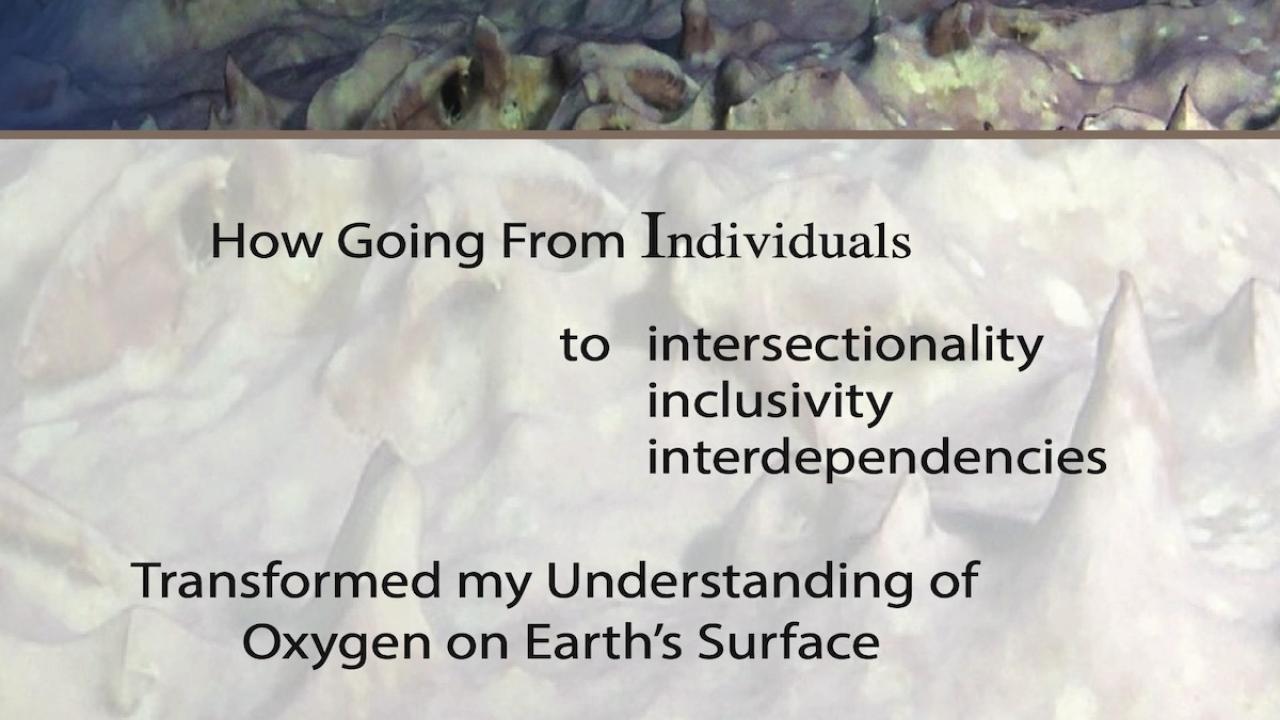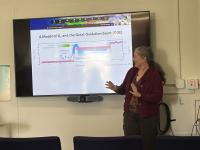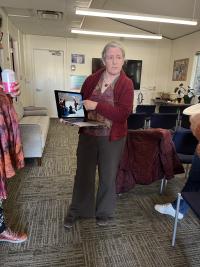
Event Recap: How Can Feminist Theory Influence Research in Antarctica?
Take a deep breath in. Go ahead. Now let it out… In that breath is 4 billion years of Earth's history. This was the beginning of Dr. Dawn Sumner's talk at the UCD Feminist Research Institute. Dr. Sumner is the FRI director and a geobiologist who currently conducts research about oxygen levels, cyanobacteria, and microbial mats in Antarctica. Her opening invited the audience to reflect on our interconnected relationship with geological time, one of the themes of the talk. She shared how key feminist principles of Interdependence, Inclusion, and Intersectionality have deeply influenced her own thinking as a scientist, allowing her to put forward ground-breaking research.
Dr. Sumner questioned how traditional science zooms in on the individual, removes context, and dissects the object of study into parts. Often in biological research, scientists hone in on how a particular factor plays a role in a specific mechanism in an organism. Dr. Sumner prompts us to ask different questions such as, Why do we need to focus on that one specific factor? What happens if we ask how the mechanisms of an organism depend on multiple factors, that these outcomes are Interdependent?

While scientists have been able to describe a Great Oxidation Event, a period in time where oxygen levels in Earth's atmosphere significantly increased, scientists debated how this process occurred. Alternatively, observing the interconnected relationships between cyanobacteria and microbial mats in Antarctica combined with historical work from genomic and rock records, she argues that what actually occurred is a Gradual Oxygenation of Environments—putting forward a game changer in her field!
Dr. Sumner also shared how her teaching and mentorship are deeply shaped by her feminist values. She recognizes that multiple perspectives on a problem can lead to increased understanding of what’s going on, benefiting everyone. This ties to the ideas of Inclusivity & Intersectionality, which consider how ‘other’ perspectives—often undervalued–can expand and improve our ways of knowing.
She states, “The perspective of a question asked influences the results.”

After the talk, those in person at the Feminist Research Institute held a group discussion where she shared how her values as a scientist have been deeply influenced by her life experiences. Dr. Sumner also showed photos of her fascinating field research.
To see a video snippet of this event, click here.
Are you a graduate student who wants to learn more about this topic? The Feminist Research Institute holds a seminar titled, "Asking Different Questions in Climate Science" where graduate students explore how the questions asked and conducted by researchers lack perspectives from marginalized communities. Why was this question asked? What does that say about the perspective you hold? What about other perspectives? Check it out when planning your classes!